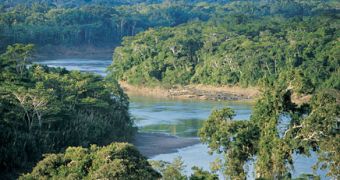Soon after local communities did their best in going against the Belo Monte project, as we already reported, it is now time for specialists to step in and also make mincemeat of the plan to build about 30 dams in the Amazon basin.
Whereas indigenous people were worried about their villages being flooded and about their no longer being able to carry on with their fishing activities, conservationists argue that, rather than generating green energy, dams on the Amazon would lead to methane being released into the atmosphere.
Thus, during the annual meeting of the Association for Tropical Biology and Conservation in Brazil, Professor Philip Fearnside, who specializes in environmental dynamics, argued that Amazonian dams could cause more damage to the environment than fossil fuels presently do.
As Mongabay reports, dams are responsible for releasing methane into the atmosphere, a chemical compound produced by decaying organic matter.
Since dams cause floods and therefore end up having dying vegetation at the bottom of their reservoirs, it is quite understandable why, once the turbines are also set in motion, methane-dense water gets “sprayed” into the air.
The same source informs us that, as opposed to carbon dioxide, methane causes global warming at much faster rates, so all the more reasons to avoid its building up in our atmosphere.
Apparently, professor Philip Fearnside told the press that “The environmental and social impact of proposed dam projects need to be evaluated in an unbiased and transparent way with full input from the scientific community and other parts of civil society.”
He also added that “Licensing procedures need to be strengthened rather than weakened and abbreviated, as is the current trend.”
In the light of these new pieces on information, perhaps the authorities who have a say in this matter will decide not to allow the Belo Monte project to unfold as planned, both for the sake of local communities in the region, and for the wellbeing of our natural world.

 14 DAY TRIAL //
14 DAY TRIAL //